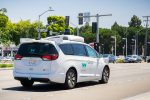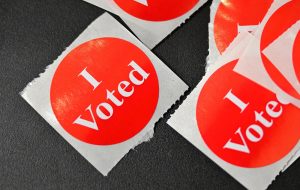
U.S. Lawmakers Raising Concerns Over Self-Driving Test Data-Collection by Chinese Companies
A bipartisan group of U.S. lawmakers has expressed growing apprehension regarding the data-collection practices of Chinese companies testing self-driving vehicles in the United States. The concerns were articulated in letters obtained by Reuters on Thursday, signed by notable figures such as House of Representatives Energy and Commerce Committee Chair Cathy McMorris Rodgers and China select committee Chair Mike Gallagher.
In these letters, addressed to 10 Chinese-affiliated companies, namely Baidu, Nio, WeRide, Didi Chuxing, Xpeng, Inceptio, Pony.ai, AutoX, Deeproute.ai, and Qcraft, the lawmakers raised specific questions about data collection during ongoing autonomous vehicle testing, particularly in California. As of the latest information, the companies have either not responded to requests for comment or could not be immediately reached.
The letters, which had not been reported previously, emphasized the lawmakers’ concerns about the potential collection of sensitive data by these companies. They highlighted the gathering of information about U.S. citizens and their daily routines, national infrastructure, and connected technologies. The lawmakers called for increased transparency surrounding the information collected during testing on American roads and raised questions about potential financial ties to the Chinese Communist Party.
The inquiries sought clarification on several key points, including what data is collected in the United States, the storage location of this data, and whether it is shared with the Chinese government or other entities. Additionally, the lawmakers questioned whether the autonomous vehicles were collecting data on U.S. infrastructure during their testing.
The letters referenced data indicating that in the 12 months leading up to November 2022, Chinese autonomous vehicle companies collectively test drove more than 450,000 miles in California alone. This substantial testing activity prompted concerns about national security, echoing comments made by Transportation Secretary Pete Buttigieg in July. Buttigieg drew parallels between concerns surrounding Chinese autonomous vehicle companies and those related to telecom or popular platforms like TikTok.
The overarching theme of the lawmakers’ communication underscores the increasing scrutiny and skepticism surrounding the operations of Chinese technology companies in the United States, particularly in sectors with potential implications for national security. The call for greater transparency reflects broader tensions around data privacy, security, and potential ties between corporations and foreign governments.
Source: Reuters

